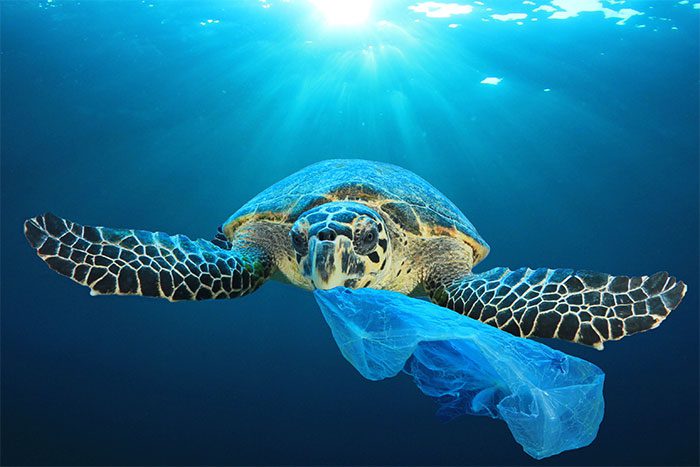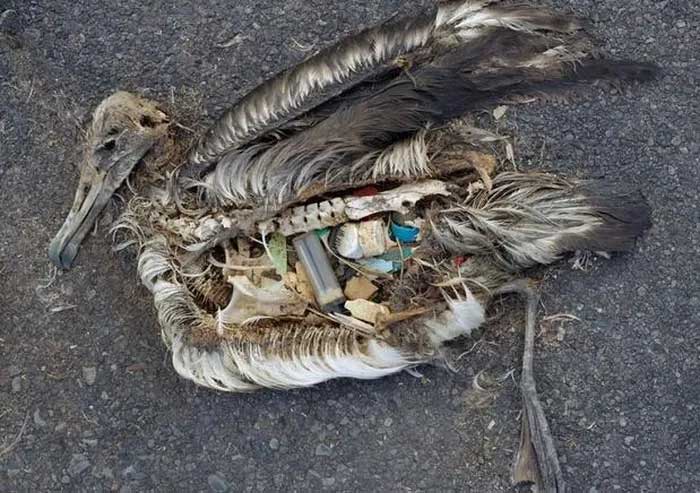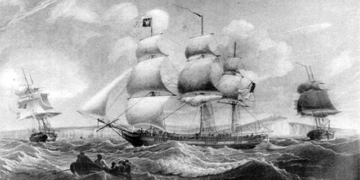Scientists say it is not coincidental that marine creatures, especially turtles, ingest plastic waste…
On the page of The Economist, Dr. Joseph Pfaller from the University of Florida (USA) and the head of the research team stated that plastic bags floating in the ocean resemble jellyfish, not only in shape but also in smell.

Turtles are easily deceived by plastic waste due to their “olfactory trap” – (Photo: GETTY IMAGES).
He explained that when plastic waste enters the ocean, over time, it emits a smell similar to that of food.
This process occurs when various bacteria and algae interact with plastic waste, gradually erasing the plastic’s chemical odors and replacing them with more natural scents.
This phenomenon is considered an “olfactory trap,” making marine animals, particularly sea turtles, more susceptible to accidentally ingesting it. Whales, seabirds, and other species also frequently consume plastic debris.
“Plastic waste attracts creatures from far away, not only due to its shape but also because it smells very much like natural food“, Dr. Pfaller stated.
Scientists reached this conclusion after testing on 15 captive sea turtles. They allowed these turtles to smell their food and the smell of ocean plastic waste while recording their reactions. The results showed that the turtles perceived the plastic waste as food.
The study was published in the prestigious scientific journal Current Biology. This discovery helps to explain why many vulnerable animals are harmed or even die due to plastic waste.
“Every plastic straw and bag that ends up in the ocean over time will emit a distinct smell that attracts animals to eat. This is also a cause of many sea turtle deaths,” according to Dr. Pfaller.
Previously, a study by the University of Exeter in 2018 indicated that more than 100 surveyed sea turtles contained varying amounts of plastic waste in their bodies.
The research also predicts that by 2050, up to 99% of seabirds will ingest plastic waste.
In Southeast Asia, several endangered marine animals have been found dead with large amounts of plastic in their stomachs. In June 2018, a whale was discovered on Songkhla Beach (Thailand), having died from choking on dozens of pieces of plastic weighing 8 kg in its stomach.

A bird’s carcass filled with plastic.
In Vietnam, with over 3,260 km of coastline (not including island coasts) stretching from North to South, there is an average of 1 km of coastline for every 100 km2 of land. Along the coastline, there are also 114 river mouths, averaging one river mouth every 20 km, and more than 50 bays and lagoons. These conditions are conducive to development but also always pose a risk of waste pollution.
It is estimated that approximately 3.1 million tons of plastic waste are generated on land each year in Vietnam. At least 10% of this poorly managed waste leaks into waterways.
This situation makes Vietnam one of the top five countries contributing to ocean plastic pollution globally. The organization has suggested that Vietnam needs to address plastic waste pollution through a combination of policy tools and fiscal mechanisms.
“Plastic waste pollution, especially ocean plastic waste pollution, has become an urgent issue at the national, regional, and global levels. Reducing plastic waste has become an immediate requirement right now.”


















































